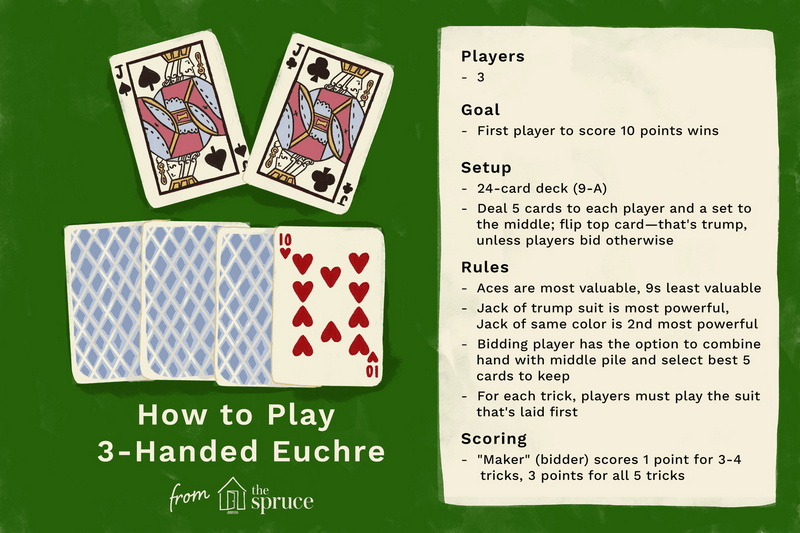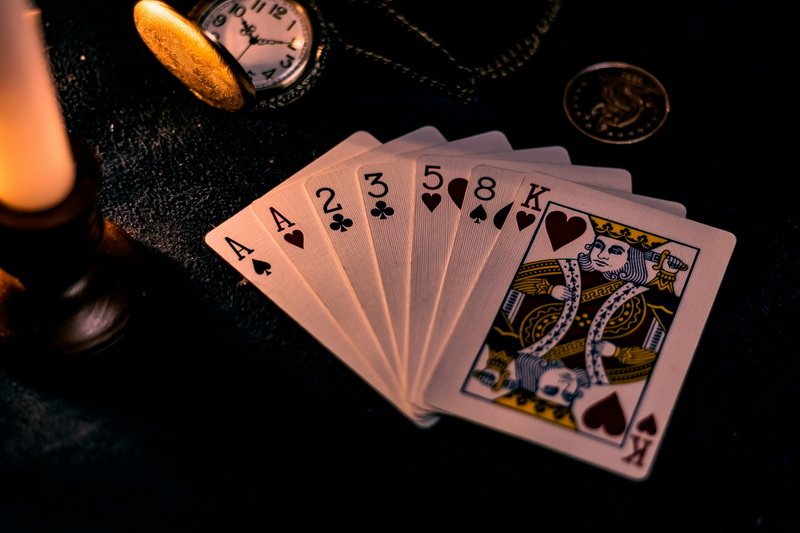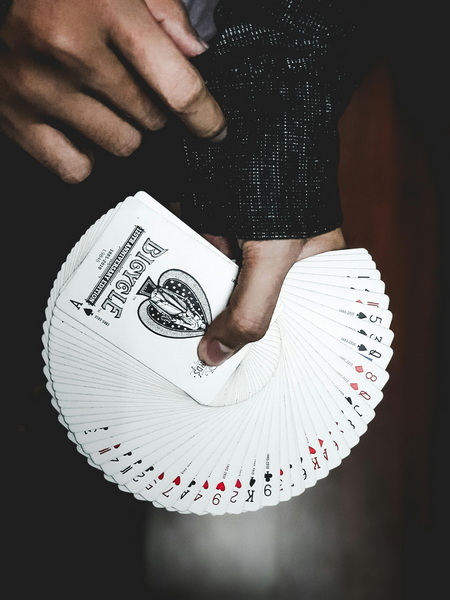Content Menu
● Game Overview
● Setting Up the Game
● Basic Rules of Cheat
● Strategies for Success
● Advanced Strategies
● Variations of Cheat
● Common Mistakes to Avoid
● Conclusion
● Frequently Asked Questions
>> 1. What happens if I run out of cards but get called on my last play?
>> 2. Can I call "Cheat" after multiple players have played?
>> 3. What should I do if I cannot make a legal move?
>> 4. Is there a limit to how many cards I can claim when playing?
>> 5. How do I keep track of what others are playing?
● Citations:
Cheat, also known as Bullshit or I Doubt It, is a lively and engaging card game that thrives on deception, strategy, and a bit of luck. The objective is simple: be the first player to discard all your cards. However, the path to victory involves bluffing and calling out opponents' bluffs. This article will delve into the rules, strategies, and variations of Cheat, ensuring you have all the knowledge needed to play effectively.

Game Overview
- Number of Players: 2-10 (best with 4-6)
- Deck: Standard 52-card deck (no jokers)
- Objective: Be the first player to discard all your cards.
Setting Up the Game
1. Deal the Cards: Shuffle the deck thoroughly. Deal all cards evenly among players. If there are leftover cards due to an uneven distribution, they can be set aside or given to one player.
2. Determine Starting Player: The player to the left of the dealer typically starts the game.
3. Discard Pile: Place a discard pile in the center where players will place their cards face down.
Basic Rules of Cheat
1. Starting Play: The first player must play Aces and declare how many they are playing (e.g., "two Aces"). They may lie about the cards they play.
2. Subsequent Turns: The next player must play a card of a higher rank (or Aces again) and declare their play. The ranks follow this order: Ace, 2, 3, ..., 10, Jack, Queen, King, then back to Ace.
3. Calling Cheat: If any player suspects that another player is lying about their cards, they can call "Cheat!" The challenged player must reveal their cards:
- If they were truthful, the challenger must pick up the entire discard pile.
- If they were lying, they must pick up the pile instead.
4. Winning the Game: The game continues until one player has successfully discarded all their cards. However, the final card played must be truthful; if challenged at that moment and found to be lying, they must pick up the pile.
Strategies for Success
To excel at Cheat, players should employ various strategies:
- Observe Patterns: Pay attention to what cards other players are discarding and what they claim to have. This will help you identify potential lies.
- Bluff Effectively: When you play your cards, mix truth with deception. For instance, if you have two Kings but play three claiming you have three Kings, it might work if no one suspects you.
- Call Out Wisely: Be cautious when calling "Cheat!" If you're wrong, you could end up with a hefty pile of cards.
- Keep Track of Cards: Remember which cards have been played and by whom. This knowledge can give you an edge in determining whether someone is lying.
- Use Psychological Tactics: Sometimes bluffing about having a certain card can provoke others into calling your bluff when you actually have it.
Advanced Strategies
As players become more familiar with Cheat, they can adopt advanced strategies to increase their chances of winning:
- Feign Weakness: Occasionally play weak hands or make smaller claims than you actually have. This can lead opponents to underestimate your hand strength and make them less likely to challenge you.
- Create Distrust Among Opponents: If you consistently call out others on their bluffs successfully, it may create an atmosphere of distrust where players start doubting each other more than they doubt you.
- Vary Your Declarations: Change how many cards you claim to play from turn to turn. Sometimes declare fewer cards than you actually have or vice versa; this unpredictability makes it harder for opponents to gauge your honesty.
- Team Play (Optional): In larger groups, consider forming temporary alliances with other players. You can help each other discard cards while keeping an eye on potential threats from others.

Variations of Cheat
To keep the game fresh and exciting, consider trying out some popular variations:
1. Unlimited Values: Players can play any value instead of being restricted to one rank higher or lower than the previous play.
2. Only Play Up or Down: Players can only play one rank above or below what was last played.
3. Jokers as Wild Cards: Include Jokers in the deck as wild cards that can represent any rank.
4. Drinking Game Version: Incorporate drinking rules where players take a sip if they are caught cheating or wrongly accuse someone else.
5. Randomized Cheat: Use two decks where one is complete and another has random cards removed for added uncertainty.
6. Blind Play Variation: Players must declare their plays without looking at their hand first; this adds an element of chance and requires quick thinking based on memory alone.
7. Timed Rounds: Introduce a timer for each player's turn to increase pressure and excitement in gameplay.
Common Mistakes to Avoid
Even experienced players can fall into traps that hinder their gameplay:
- Over-Bluffing: While bluffing is essential in Cheat, overdoing it can lead others to catch on quickly. Balance honesty with deception for better results.
- Ignoring Opponents' Patterns: Failing to observe how others play can cost you dearly; always watch for trends in your opponents' behavior.
- Being Too Predictable: If players notice that you always bluff when playing Kings or always tell the truth when playing Aces, they'll catch on quickly and start calling your bluffs more often.
- Neglecting Your Own Hand Management: Focus too much on others' plays at times may lead you to neglect your own hand's strategy; ensure you're also planning your moves effectively while observing others.
Conclusion
Cheat is not only about getting rid of your cards but also about outsmarting your opponents through deception and strategic thinking. The blend of luck and skill makes it a captivating game for players of all ages. Whether you're playing casually with friends or in a competitive setting, understanding the rules and employing effective strategies will enhance your gaming experience while providing endless entertainment.

Frequently Asked Questions
1. What happens if I run out of cards but get called on my last play?
If you run out of cards but are challenged on your last play and found to be lying, you must pick up the discard pile and continue playing until you can discard again.
2. Can I call "Cheat" after multiple players have played?
No, you can only challenge the most recent player's play before the next player takes their turn.
3. What should I do if I cannot make a legal move?
If you cannot make a legal move during your turn (e.g., you have no cards matching the required rank), you must still declare a play (even if it's false) or pass your turn by saying "pass."
4. Is there a limit to how many cards I can claim when playing?
Yes, there is typically no limit on how many cards you can claim as long as they match the rank you're declaring; however, lying about this number can lead to being challenged.
5. How do I keep track of what others are playing?
Pay attention during gameplay; take mental notes on what ranks have been played and who has declared them to spot potential lies more effectively.
Citations:
[1] https://www.reddit.com/r/cardgames/comments/rfavz1/the_best_cheat_bullsht_rules/
[2] https://www.coololdgames.com/card-games/shedding/cheat/
[3] https://www.jocu.cards/jocu-game-night-003-how-to-play-cheat
[4] https://hobbylark.com/card-games/How-to-Play-the-Card-Game-Cheat
[5] https://en.wikipedia.org/wiki/Cheat_(game)
[6] https://www.adda52.com/cheat-card-game
[7] https://www.youtube.com/watch?v=AC-JWgeZbv4
[8] https://www.pagat.com/beating/cheat.html
[9] https://www.geekyhobbies.com/cheater-card-game-review/
































